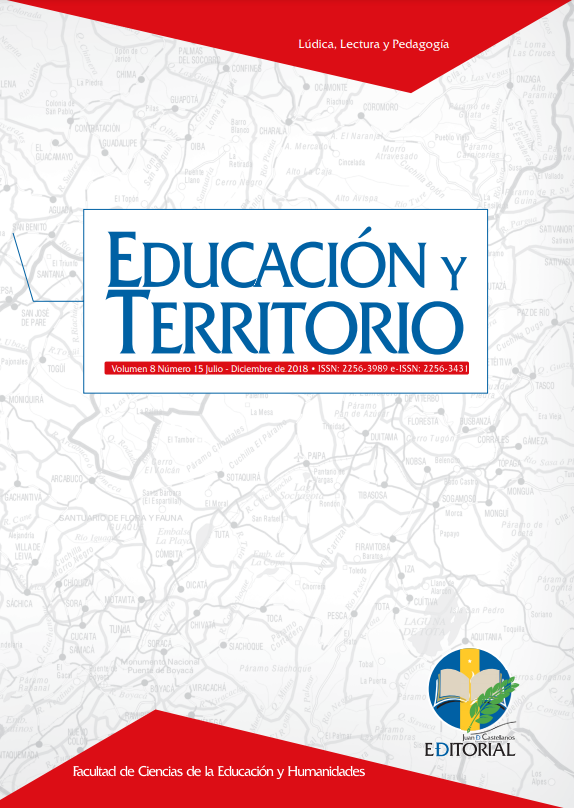The school library, a place that stimulates the reading culture of sixth-grade students
Keywords:
library, practice, animation, readingAbstract
The school library can be seen as an essential setting for the acquisition of knowledge, which supports the educational processes of the institutions. The present document shows the results of a research study developed under the qualitative approach of action-research, to observe the reality and collect data to describe the reading habits of sixth-grade students of Institución Educativa Distrital (I.E.D) Los Naranjos School, and to identify the use of the school library. With the results, activities were proposed that encourage the reading culture and the relationship of enjoying books. Four instruments were applied to collect information: an open interview with the librarian of the institution, closed questionnaires to students, reading workshops and field diaries that were used as analysis strategies during the activities. It was concluded that students like going to the library, but do not attend the reading activities offered there, they are motivated to read mainly narrative and written text, not digitally; and this action is carried out mainly at home, because in the school library, despite the activities proposed by the bibliographic collection, it is limited and directed to children, which generates demotivation; while, the workshops with appropriate readings for the age of the chosen group and interests, give evidence of great acceptance and motivation for the oral and written word as a tool of communication and reflection of the context.
Author Biographies
Bertha Rocío Cortés Gamba, Fundación Universitaria Juan de Castellanos
Licenciada en Educación Básica con énfasis en Lengua Castellana, Pontificia Universidad Javeriana.
Especialista en Lúdica Educativa, Fundación Universitaria Juan de Castellanos.
Docente Institución Educativa Distrital Orlando Higuita Rojas.
Edna Lisseth Puentes Herrán, Fundación Universitaria Juan de Castellanos
Licenciada en Educación Básica con Énfasis en Lengua Castellana, Universidad del Tolima.
Especialista en Lúdica Educativa, Fundación Universitaria Juan de Castellanos. Docente Institución Educativa Gabriel García Márquez.
References
Álvarez, D., Ocampo, N., Giraldo, Y., Guerra, L., Melgar, L., y Gómez, M. (2008). La promoción de la lectura en las bibliotecas públicas de Medellín. Revista Interamericana de Bibliotecología, 31(1), 161-205. https://aprendeenlinea. udea.edu.co/revistas/index.php/RIB/article/view/1923
Calonje, P. (2008). La biblioteca escolar y la formación lectora. Revista Folios, (27), 77-89. http://www.redalyc.org/articulo.oa?id=345941357007
Cebrián, C. (2012). Propuesta metodológica de estrategias de animación a la lectura en el segundo ciclo de educación infantil. (Trabajo de grado, Universidad de Valladolid). http://uvadoc.uva.es/handle/10324/1103
Congreso de Colombia. (1994, 8 de febrero). Artículos 21 y 141. Ley General de Educación 115 de 1994.
Charmeux, E. (1992). Cómo fomentar los hábitos de lectura. Ceac.
DANE. (2014). Departamento Administrativo Nacional de Estadística. https:// w w w.elespectador.com/not icias/nacional/colombianos-disminuyen- habito-de-lectura-durante-2014-d-articulo-509326
Espinosa, J. (2016). Lectura y ciudadanos lectores en espacios no convencionales. (Tesis de Maestría, Universidad Externado de Colombia).
Fundalectura. (2014). Informe de gestión y actividades. Bogotá.
Galler, A. (1999). La biblioteca escolar en el siglo XXI. Documents in Information Science, 11, 24-32.
Hernández, R., Fernández, C., y Baptista, P. (1995). Metodología de la investigación. McGraw-Hill.
Hinojosa, F. (2012). La Peor Señora Del Mundo. Fondo de Cultura Económica. IDRD. Instituto de Recreación y Deporte. Bogotá Colombia.
Lewin, K. (1988). Acción-investigación y problemas de las minorías. Revista de Psicología Social, 3(2), 229-240. https://doi.org/10.1080/02134748.1988.10821586
Lopera, L. (2005). Una ética bibliotecológica para afrontar los retos de nuestro tiempo. (Tesis, Universidad de Antioquia). http://eprints.rclis.org/5839/1/etica_ bibliotecologica.pdf
Martín, J. (1995). Pre-textos. Universidad del Valle.
Martos, E., y Martos, A. (2012). De los espacios de lectura a los espacios letrados. Pulso, (35), 109-129. http://hdl.handle.net/10017/13001
Ministerio de Educación Nacional - MEN. (1998). Lineamientos Curriculares de Lengua Castellana. Magisterio.
Osoro, K. (2000). Biblioteca escolar y hábito lector. Educación y futuro. Revista de investigación aplicada y experiencias educativas, (2), 21-30. https://dialnet. unirioja.es/servlet/articulo?codigo=2043928




